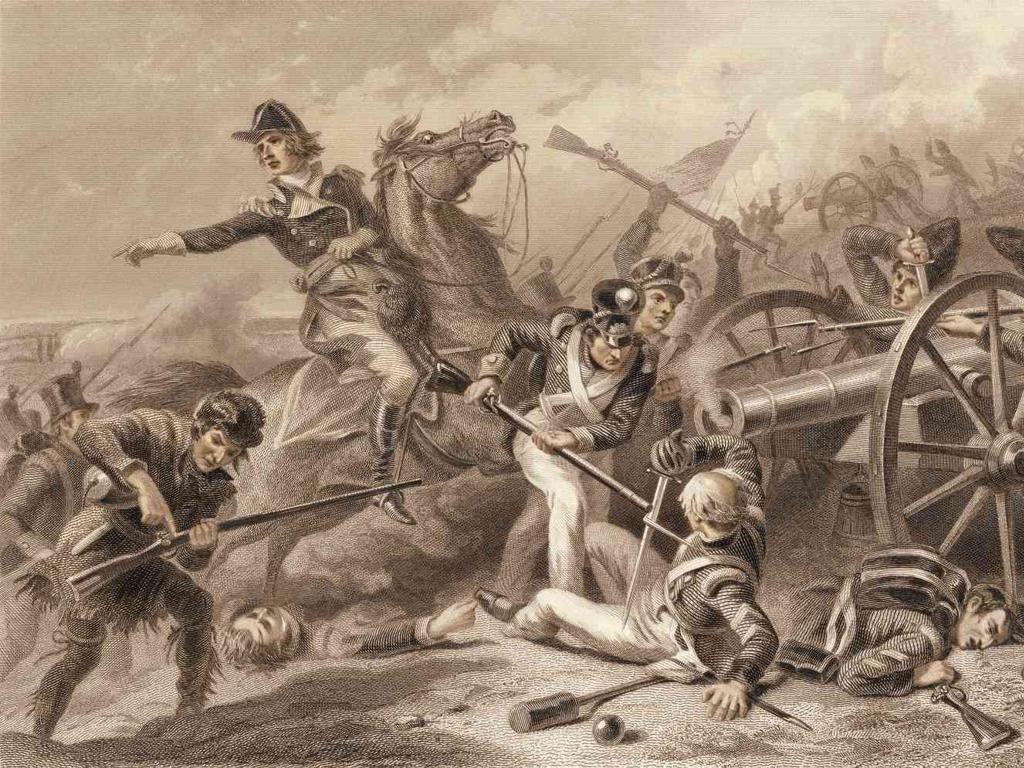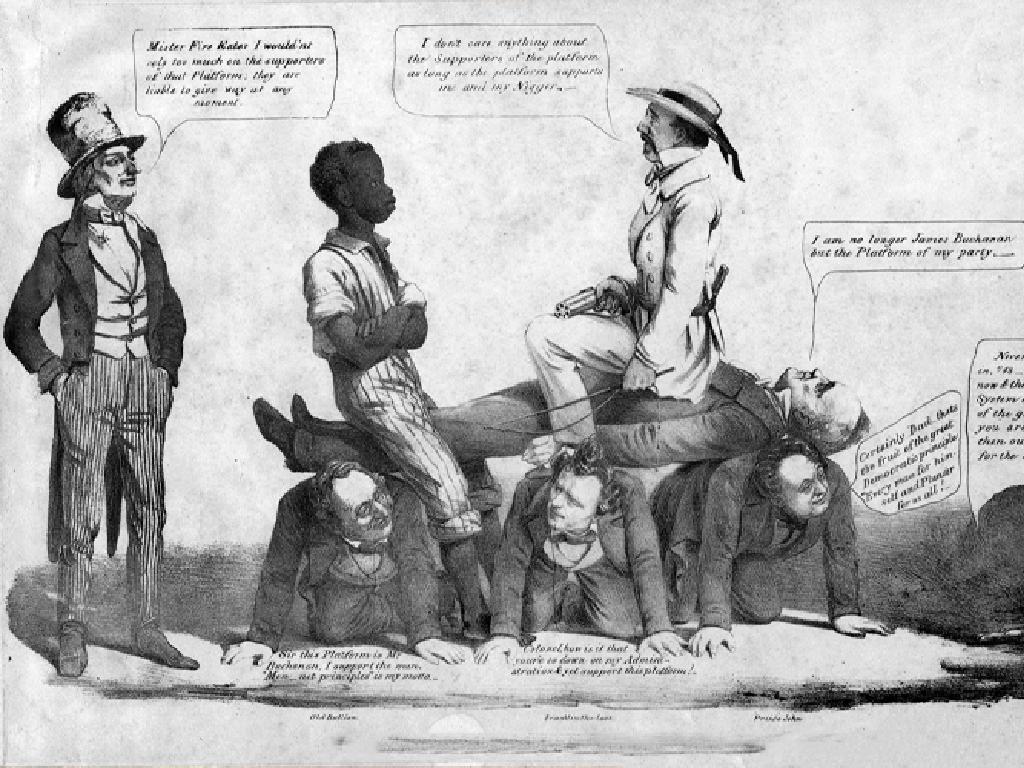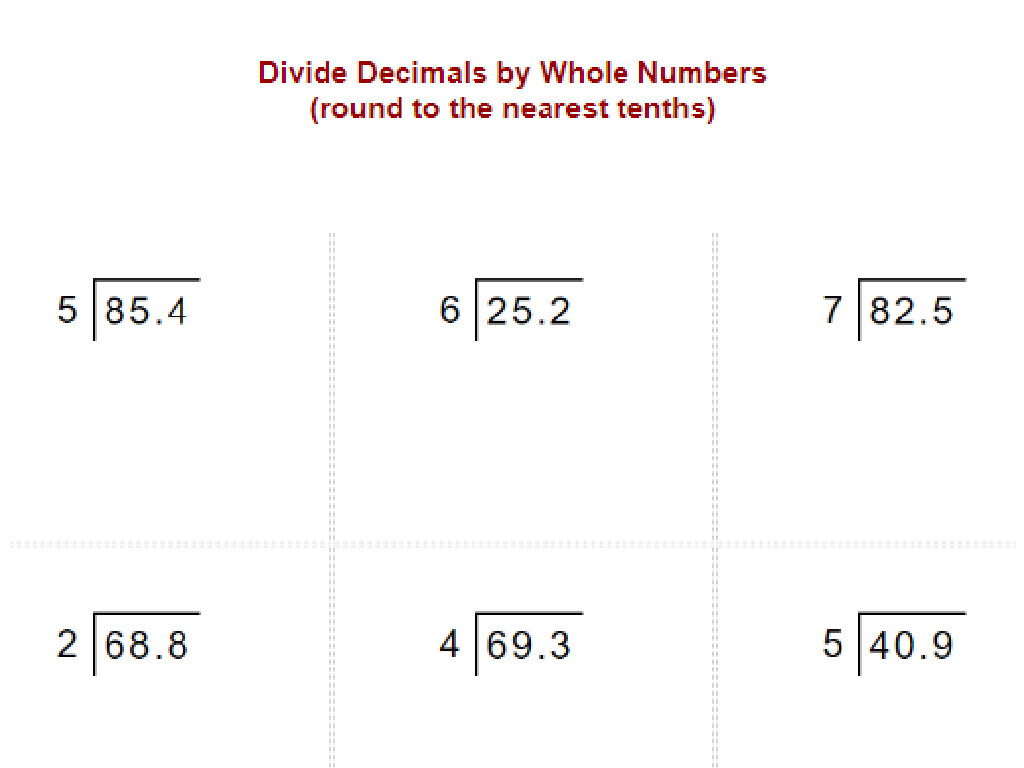Tariff, Nullification, And Bank War
Subject: Social studies
Grade: Eighth grade
Topic: The Jacksonian Period
Please LOG IN to download the presentation. Access is available to registered users only.
View More Content
Welcome to the Jacksonian Era!
– Explore the Jacksonian period
– A transformative era in U.S. history, marked by Andrew Jackson’s presidency.
– Era of President Andrew Jackson
– Jackson’s presidency was a time of significant change and controversy.
– Discuss Tariff and its impact
– Tariffs are taxes on imports; the ‘Tariff of Abominations’ led to conflict.
– Nullification Crisis and Bank War
– The Nullification Crisis challenged federal authority, and the Bank War reshaped the nation’s financial system.
|
This slide introduces students to the Jacksonian period, a pivotal time in American history during Andrew Jackson’s presidency. It sets the stage for discussing the major events and policies of this era, including the controversial Tariff of Abominations, which caused economic distress in the South and led to the Nullification Crisis. Additionally, the Bank War, Jackson’s campaign against the Second Bank of the United States, had lasting effects on the nation’s economy. Encourage students to consider how these issues reflect the tensions between federal power and states’ rights, as well as the impact of economic policy on different regions of the country.
Understanding Tariffs in the Jacksonian Era
– Definition of a tariff
– A tariff is a tax imposed on imported goods.
– Tariffs’ dual purpose
– Tariffs protect local businesses and generate government revenue.
– The Tariff of 1828
– Known as ‘Tariff of Abominations’, it led to significant controversy.
– Impact on domestic policy
– Tariffs influenced debates on states’ rights and federal power.
|
This slide introduces the concept of tariffs and their significance during the Jacksonian period. A tariff is essentially a tax on goods coming into the country, which can help protect domestic industries from foreign competition and also serve as a source of revenue for the government. The Tariff of 1828, labeled as the ‘Tariff of Abominations’, was particularly controversial and had a profound impact on the political landscape of the time, including debates over states’ rights. It’s important for students to understand the economic and political motivations behind tariffs and how they can lead to larger conflicts, such as the Nullification Crisis. Discuss the regional differences in opinion on tariffs and how this played into the tension between the North and the South.
The Nullification Crisis
– Nullification: States vs. Federal Laws
– States claimed the right to void federal laws deemed unconstitutional
– South Carolina’s Tariff Stand
– South Carolina opposed the ‘Tariff of Abominations’, sparking tension
– Jackson’s Nullification Proclamation
– President Jackson asserted federal power, denounced nullification in 1832
– Impact on Federal Authority
– The crisis tested the balance of state and federal powers, influencing future governance
|
The Nullification Crisis was a pivotal moment in American history, highlighting the tension between states’ rights and federal authority. It began when South Carolina, protesting the Tariff of 1828, declared it could nullify federal law. This concept of nullification suggested that states could invalidate federal laws they believed to be unconstitutional. President Andrew Jackson responded with a strong message in his Nullification Proclamation, asserting the supremacy of federal law and the unconstitutionality of nullification. This confrontation set the stage for future conflicts over states’ rights and federal power. In class, discuss the implications of this crisis on the evolution of federalism in the United States.
The Bank War: Jackson vs. The National Bank
– The Bank War explained
– A political battle over the future of the Second Bank of the United States
– Jackson’s stance against the bank
– Andrew Jackson believed the bank favored the wealthy and opposed its recharter
– Economic impact post-Bank War
– The closure led to economic instability and the Panic of 1837
|
The Bank War was a significant event during Andrew Jackson’s presidency, involving a fierce political struggle over the rechartering of the Second Bank of the United States. Jackson’s opposition stemmed from his view that the national bank was an institution that benefited the rich at the expense of the common people. His veto of the bank’s recharter bill and subsequent withdrawal of government funds from the bank led to its demise. This slide will explore the reasons behind Jackson’s opposition and the subsequent economic consequences, including the Panic of 1837, which was characterized by bank failures and widespread unemployment. Students should understand the broader implications of the Bank War on the U.S. economy and the political landscape of the time.
Impact of Tariff, Nullification, and Bank War
– Shaped economy and politics
– Tariffs protected Northern industries but hurt Southern economy, leading to political conflicts.
– Altered federal and state power
– The struggle defined the balance of power, with states asserting rights against federal authority.
– Lasting effects on governance
– These events influenced the role of government in the economy and states’ autonomy.
– Compare past and present policies
– How do historical economic strategies resemble or differ from today’s policies?
|
This slide examines the profound impact of the Tariff, Nullification, and Bank War on America during the Jacksonian period. Students should understand how these events shaped the nation’s economy and political landscape, particularly the protective tariffs that favored Northern industries at the expense of the Southern economy, leading to the Nullification Crisis. The power struggle between federal authority and state rights during this era set precedents for future governance. Encourage students to think critically about the lasting effects on federal and state power and to engage in a discussion comparing the economic policies of the past with those of the present day, fostering an understanding of how historical policies can inform current economic decisions.
Class Debate: Tariff Issue
– Form Pro-tariff & Anti-tariff groups
– Present arguments from today’s lesson
– Engage in a class debate
– Use historical facts & impacts discussed
– Vote on the most convincing side
|
This class activity is designed to deepen students’ understanding of the tariff issue during the Jacksonian period by actively engaging them in a debate. Divide the class into two groups, ensuring a mix of abilities in each. Provide each group with key points from today’s lesson to help them build their arguments. Encourage students to use historical facts, the economic impact of tariffs, and the perspectives of different stakeholders from the period. After the debate, hold a class vote to decide which group presented the most convincing argument. This will not only help students to better grasp the complexities of the issue but also develop their public speaking and critical thinking skills. Possible activities for different students could include acting as debate moderators, timekeepers, or even as historical figures arguing their case.






